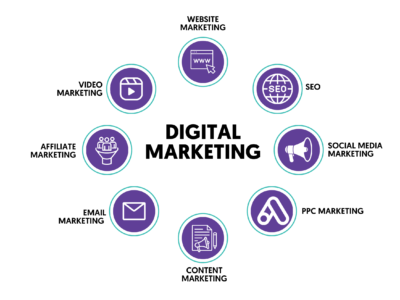Data Analytics

Click to Apply
The Data Analysis course provides students with the knowledge and practical skills necessary to analyze and interpret data effectively. In today’s data-driven world, the ability to extract meaningful insights from data is essential across various industries and fields. This course covers essential concepts, techniques, and tools used in data analysis, including data visualization, statistical analysis, and data wrangling. Through a combination of theoretical lectures, hands-on exercises, and real-world case studies, students will learn how to manipulate and analyze data sets, interpret results, and communicate findings effectively.
uniYAT Practical Institute (UPI) stands out as the sole institution in Ghana offering 85% practical hands-on training, enabling students to acquire a top-notch skillset.
Click to Apply
Other job titles used to refer to this kind of work include:
What You Can Do
Upon completing a program in networking, you will acquire the knowledge and skills required for roles such as:
- Data Analyst: Analyzes data sets to extract meaningful insights, identify trends, and inform business decisions.
- Business Analyst: Analyzes business processes and requirements, often using data analysis techniques to identify areas for improvement and optimize performance.
- Data Scientist: Utilizes advanced statistical and machine learning techniques to analyze complex data sets and develop predictive models for forecasting and decision-making.
- Quantitative Analyst (Quant): Applies mathematical and statistical methods to analyze financial markets, investment strategies, and risk management.
- Market Research Analyst: Collects and analyzes market data to identify consumer trends, assess market opportunities, and inform marketing strategies.
- Operations Analyst: Analyzes operational data to optimize processes, improve efficiency, and reduce costs within an organization.
- Financial Analyst: Analyzes financial data to evaluate investment opportunities, assess financial performance, and support strategic decision-making.
- Healthcare Data Analyst: Analyzes healthcare data to improve patient outcomes, optimize clinical processes, and reduce healthcare costs.
- Data Engineer: Designs and maintains data infrastructure and systems for storing, processing, and analyzing large volumes of data.
- Marketing Analyst: Analyzes marketing campaign performance, customer behaviour, and market trends to optimize marketing strategies and drive business growth.
- Web Analyst: Analyzes website traffic, user behaviour, and performance metrics to optimize website design, content, and user experience.
- Social Media Analyst: Analyzes social media data to understand audience behaviour, measure campaign effectiveness, and inform social media strategies.
- Risk Analyst: Analyzes data to assess and mitigate risks in areas such as finance, insurance, and cybersecurity.
- Environmental Data Analyst: Analyzes environmental data to assess environmental impacts, monitor compliance with regulations, and inform environmental policy decisions.
- Data Visualization Specialist: Creates visualizations and dashboards to communicate data insights effectively to stakeholders using tools like Tableau, Power BI, or Matplotlib.
What You Will Earn
A competitive yearly starting salary ranging from GHS48,000 to GHS98,000 per annum
Taught programs under Data Analysis
- Introduction to Data Analysis
- Data Collection and Preprocessing
- Fundamentals of Statistics and Probability
- Exploratory Data Analysis (EDA)
- Introduction to Programming for Data Analytics
- Data Visualization Techniques
- Descriptive Statistics
- Machine Learning Basic
- Big Data Analytics
- Data Mining and Pattern Recognition
- Inferential Statistics and Hypothesis Testing
- Regression Analysis
- Time Series Analysis
- Data Analytics in Busines
- Advanced-Data Visualization and Dashboarding
- Introduction to Machine Learning for Data Analysis
- Ethical Considerations in Data Analysis
- Introduction to Data Analytics
Core Curriculum Competencies
The Core Curriculum Competencies listed below identify what you, as a student, will be able to do upon completion of your programme, regardless of your level. You will acquire these core competencies through your general education courses (i.e. English, math, etc.) and your program of study courses.
- Communicate clearly and effectively both orally and in writing.
- Demonstrate effective problem-solving and reasoning skills.
- Work effectively in groups of people from diverse backgrounds.
- Demonstrate ethical and professional understanding and conduct.
- Apply appropriate information literacy skills to locate, evaluate, and use information effectively.
- Use computers or related technology for practical and/or professional applications.
- Apply scientific inquiry and mathematical reasoning to practical problems.
INTERNSHIPS
For current programs, internships provide a path to translate classroom-based instruction to real-world scenarios, get a sense of the industry and make connections for future employment endeavours. We enforce and require every student to participate in at least one month of field experience in their chosen career field.
DURATION
The Data Analysis course spans approximately one year. This year is divided into three levels, with each level lasting for 4 months. Therefore, the course consists of three levels in total.
Class Sessions
| Sessions | Weekdays, 8 credit hours (Monday to Thursday) 2hrs daily |
Weekends, 8 credit hours (Saturdays and Sundays) 4hrs daily |
| Morning Session 1 | 8.30 am to 11 am | 9 am to 1 pm |
| Morning Session 2 | 11 am to 1 pm | —— |
| Afternoon Session | 1 pm to 3 pm | 2 pm to 6 pm |
| Evening Session | 5:30 pm to 7:30 pm | —— |
Fees
- Registration form: GHS 100 (one-time payment)
- Admission fee: GHS 290 (one-time payment)
- Tuition fee: GHS 1995 (paid per level or semester)
Foreign students
Registration form: Free
Admission fee USD 50 (one-time payment)
Tuition fee: USD 300 (paid per level or semester)
The quoted fees above represent the cost per level or semester of the program.
Click to Apply
Hostel
- Yes! Hostel facility available
- Hostel fees are paid separately
- Obey all hostel rules and regulations
Course Materials
All course materials will be provided during the lessons and through online links. However, other required materials need to be purchased before taking the class. To fully benefit from this course, access to a personal laptop is also necessary.
General Admission Requirement
- Must demonstrate talent and potential
- Must be focused and willing to enact change
- Must have a passion for computers
- Willingness to work long hours in an office setting
- No prior computer knowledge is required (Training will be provided
Course Requirement
Level1: Foundations of Data Analytics
Introduction to Data Analytics
- Overview of Data Analytics
- Importance and Applications of Data Analytics
- Data Analytics Lifecycle
- Tools and Technologies for Data Analytics
Data Collection and Preprocessing
- Data Collection Methods (Surveys, Web Scraping, APIs)
- Data Cleaning and Data Wrangling Techniques
- Exploratory Data Analysis (EDA)
- Data Visualization Principles and Tools (Matplotlib, Seaborn)
Fundamentals of Statistics and Probability
- Descriptive Statistics (Mean, Median, Mode)
- Probability Distributions (Normal Distribution, Binomial Distribution)
- Inferential Statistics (Hypothesis Testing, Confidence Intervals)
- Correlation and Regression Analysis
Introduction to Programming for Data Analytics
- Introduction to Programming Languages for Data Analytics (Python, R)
- Data Manipulation and Analysis with Pandas (Python) or dplyr (R)
- Introduction to Jupyter Notebooks and RStudio
- Hands-on Exercises and Projects
Level 2: Advanced Data Analytics Techniques
Machine Learning Basics
- Introduction to Machine Learning
- Supervised Learning Algorithms (Linear Regression, Logistic Regression, Decision Trees)
- Unsupervised Learning Algorithms (K-Means Clustering, Hierarchical Clustering)
- Model Evaluation and Validation Techniques
Big Data Analytics
- Introduction to Big Data Technologies (Hadoop, Spark)
- Working with Distributed File Systems and MapReduce
- Processing and Analyzing Big Data with Spark
- Hands-on Projects with Big Data Tools
Data Mining and Pattern Recognition
- Association Rule Mining (Apriori Algorithm)
- Clustering Algorithms (K-Means, DBSCAN)
- Time Series Analysis and Forecasting
- Anomaly Detection Techniques
Advanced-Data Visualization and Dashboarding
- Interactive Data Visualization Libraries (Plotly, Bokeh)
- Dashboarding Tools (Tableau, Power BI)
- Designing Effective Dashboards for Decision-Making
- Real-world Data Visualization Projects
Level 3: Applications and Capstone Project
Data Analytics in Business
- Marketing Analytics and Customer Segmentation
- Financial Analytics and Risk Management
- Healthcare Analytics and Predictive Modeling
- Case Studies and Industry Applications
Ethical and Legal Considerations in Data Analytics
- Privacy and Security Concerns in Data Analytics
- Ethical Use of Data and Responsible AI
- Regulatory Compliance (GDPR, HIPAA)
- Best Practices and Guidelines for Data Ethics
Course Features
- Duration 5 Months
- Activities Certificate





